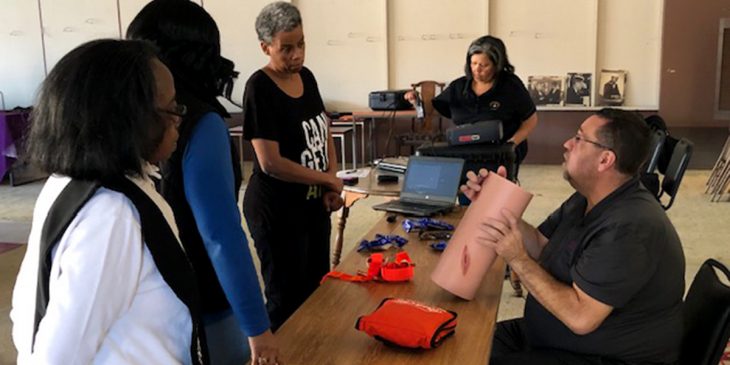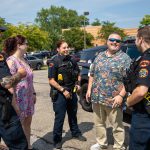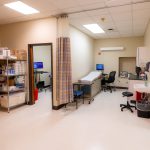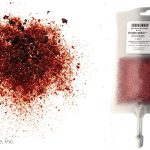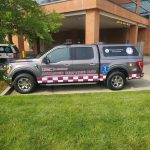In an unfortunate reality, situations resulting in traumatic injury and severe blood-loss occur every day. Whether it be a mass shooting, motor vehicle crash, bombing or home or work-related injury, it is important to know how to respond when a person succumbs to life-threatening bleeding.
Teaching the public simple life skills such as applying pressure or fastening a tourniquet can make the difference of whether a victim lives or dies.
“The idea behind Stop the Bleed training is to create a new level of responder— everyday people who can act before EMS responders arrive to provide care,” said Dave Bertoty, clinical director for Emergency and Trauma Services at UPMC Presbyterian.
UPMC McKeesport recognizes the importance of educating the community. On Jan. 5, the UPMC McKeesport faith-based Organization Call to Action Committee hosted a “Saving Lives When Every Second Counts” Stop the Bleed and hands-only CPR training session. Funded by the Beckwith Foundation, the committee is comprised of local McKeesport community pastors and hospital leaders and is dedicated to promoting the health and wellness of the McKeesport area.
 At the event, 21 attendees from congregations in the area were trained to apply direct pressure for seven to 10 minutes, fasten tourniquets high and tight on legs and arms, and insert combat gauze into wounds on the abdominal cavity. They also received training in hands-only CPR to be used in the event of a cardiac arrest and were encouraged to download the In Case of Emergency (ICE) app on their smartphones. This app allows emergency teams to contact the families of anyone unable to verbally communicate.
At the event, 21 attendees from congregations in the area were trained to apply direct pressure for seven to 10 minutes, fasten tourniquets high and tight on legs and arms, and insert combat gauze into wounds on the abdominal cavity. They also received training in hands-only CPR to be used in the event of a cardiac arrest and were encouraged to download the In Case of Emergency (ICE) app on their smartphones. This app allows emergency teams to contact the families of anyone unable to verbally communicate.
“It is so important to get this type of training out of the hospitals and into the local community” said Dawndra Jones, chief nursing officer, vice president of Patient Services at UPMC McKeesport.
The attendees of the training session were given Stop the Bleed kits equipped with tools to suppress bleeding to station in their buildings. A total of seven kits were distributed to each of the groups that participated.
“Sometimes it’s hard to get people interested in something like this until it hits home,” said the Rev. Earlene Coleman, member of the Call to Action Committee.
While it can seem overwhelming for someone with no medical background to administer this type of care to a wounded victim, education in the proper steps is easily accessible. UPMC McKeesport plans to continue integrating training into the local community through future classes and events.
Currently, UPMC offers monthly Stop the Bleed classes. Organizations can also schedule individualized training if they prefer. To schedule a training session or to learn more about Stop the Bleed, visit StopTheBleedToday.com.



